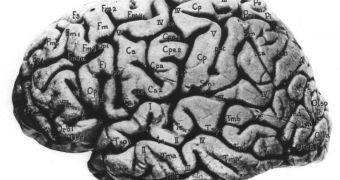In a paper published in the latest issue of the esteemed scientific journal Neuron, experts at the University of California in Los Angeles (UCLA) reveal the discovery of a new signaling pathway in the human brain that may be used as a target for therapies against fronto-temporal dementia.
This form of dementia affects the frontal lobe of the brain. This component is the newest addition to the human brain, evolutionarily speaking, and it holds the necessary circuitry to enable most of our higher cognitive functions. In other words, it represents the source of our civilization.
But fronto-temporal dementia acts on neurons in this region, forcing the nerve cells to simply die off. This leads to significant side-effects for these patients, who can no longer utilize the mental resource they once had access to.
According to official statistics, it would appear that FTD accounts for no less than 25 percent of all early-onset dementia cases. Doctors say that it usually begins to develop between the ages of 40 and 64, and add that it may evolve into other forms of dementia as well.
Patients' personalities and behaviors are the first to be affected by the disease, as are their abilities to communicate properly with others, and understand nuances and complex speech. Most of these functions require a working frontal lobe to reach their full potential.
In their most recent study, the UCLA investigators were able to discover a signaling pathway that apparently plays a very important role in underlying FTD. If their discovery is confirmed, then the experts may soon start work on a drug capable of acting on this pathway.
“A family history exists for nearly half of the frontotemporal dementia patients we see, suggesting a genetic component for the disease,” UCLA David Geffen School of Medicine neurology professor Dr. Daniel Geschwind explains.
“Our goal was to reveal what happens on a molecular level that causes the neuron death leading to this devastating disease,” adds the expert, a professor of psychiatry at the university's Semel Institute for Neuroscience and Human Behavior.
He also holds an appointment as the UCLA Gordon and Virginia MacDonald Distinguished Chair in Human Genetics. “Cell death is easy to observe in brain tissue removed from patients after their death,” the expert says.
“We pursued two other approaches to determine the mechanism behind brain-cell survival and uncover how early it occurs in the disease,” he concludes, quoted by PsychCentral.

 14 DAY TRIAL //
14 DAY TRIAL //